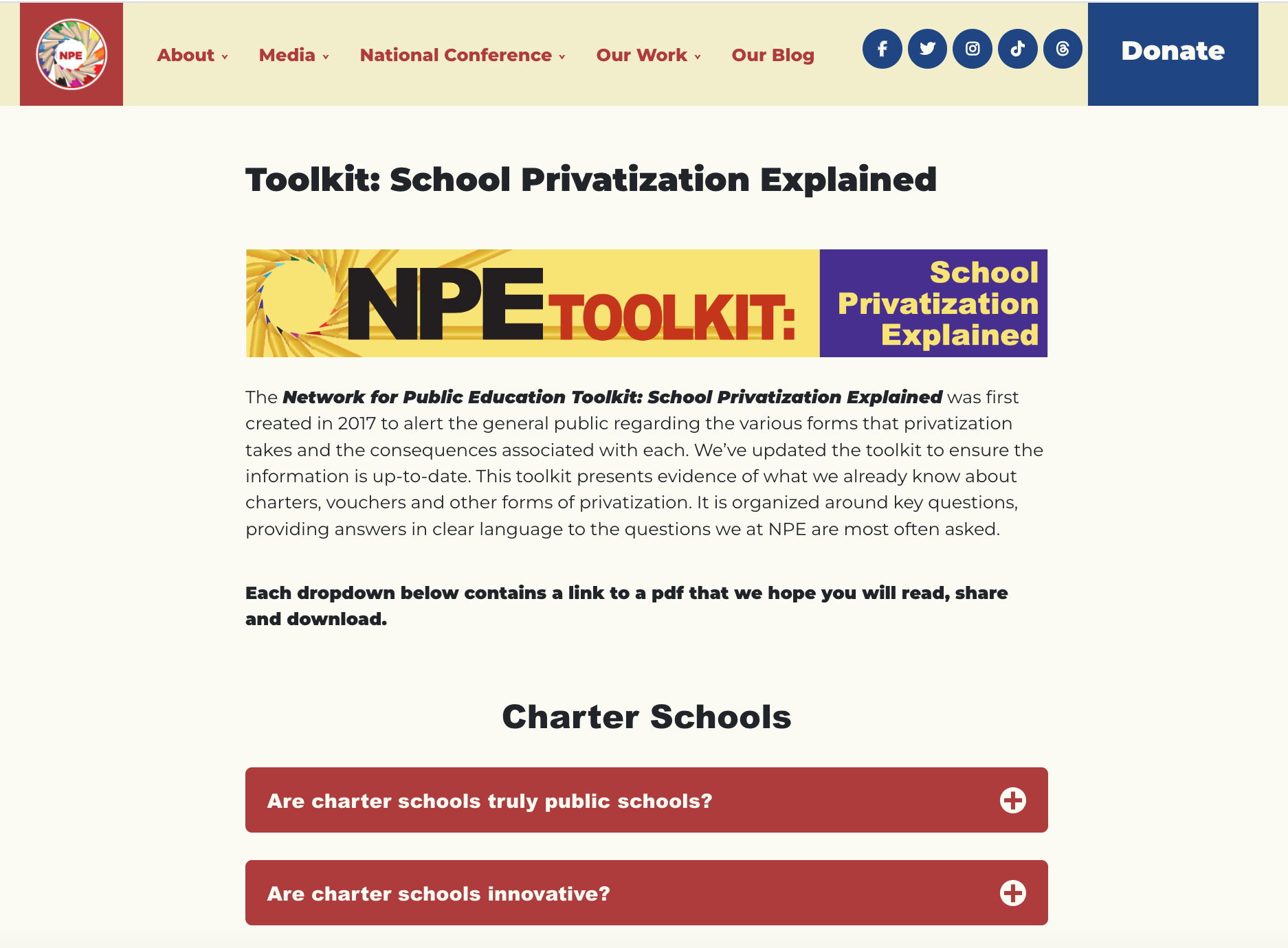
STUDENTS
Students, you can join the movement to defeat vouchers! Did you know your peers are already taking a stand against voucher programs? These programs can pull vital funds from our public schools, affecting our education and resources. Get involved by supporting leaders who back fair funding for our schools, or diving into groups that fight for all of our educational rights. Your voice matters as you are pushing for policies that make sure all students get the education they deserve. Check out the resources below to learn more.
Proposed private school voucher expansions divert even more money from an already underfunded public school system, and fail to address severe teacher shortages.
North Carolina public schools face severe teacher and staff shortages, especially in rural areas, and the state ranks dead last or near last in several national categories charting public education spending.
The Network for Public Education Toolkit: School Privatization Explained was first created in 2017 to alert the general public regarding the various forms that privatization takes and the consequences associated with each. We’ve updated the toolkit to ensure the information is up-to-date. This toolkit presents evidence of what we already know about charters, vouchers and other forms of privatization. It is organized around key questions, providing answers in clear language to the questions we at NPE are most often asked.
IDRA 5 Reasons Private School Vouchers Would Hurt Students – Infographic
Public schools in Illinois can't discriminate on the basis of disability status, gender identity, sexual orientation, language, pregnancy or parenting status, marital status, or religion. But under the Invest in Kids voucher program, public dollars are now going to private schools in Illinois, many of which do discriminate against students in all these protected categories.
Policies that base funding on community wealth and ignore the real costs of educating all students hurt everyone, especially students of color, students from families with limited incomes, and students who require additional programs, supports and services.
PFPS continues to showcase the work of public education advocates across the country in the latest installment of the PFPS interview series. These interviews offer advice and insights for others fighting private school voucher proposals. Given the large number of voucher bills already introduced in the 2023 legislative session, sharing knowledge and inspiration from successful state and local organizations opposing these policies is more crucial than ever. This interview highlights the efforts of dedicated public school advocates in Betsy DeVos’s home state of Michigan, which remains voucher free despite powerful pro-privatization forces once again focusing their energies on establishing a voucher program in the Great Lakes State last year.
The National Coalition for Public Education has compiled a series of fact sheets on school voucher programs.
In this fact sheet Public Funds Public Schools reveals the true cost of private school vouchers.
In recent months, state legislatures across the country have broadened efforts to subsidize private school tuition with taxpayer dollars. New proposals for these programs—collectively called school vouchers—have appeared in more than a dozen states and passed as major priorities for Republican governors like Kim Reynolds in Iowa and Sarah Huckabee Sanders in Arkansas. Since 2021, Arizona, Florida, Utah and West Virginia have also created or expanded voucher plans. Meanwhile, a handful states like Indiana, Louisiana, Ohio and Wisconsin have run voucher programs for years. But do school vouchers actually work? We need to focus on what research shows, and what that means for kids moving forward.
Education Voters of Pennsylvania developed this report on the $340 million in annual funding for EITC and OSTC programs that provide taxpayer-supported vouchers to students who attend private and religious schools.
This webinar features Dr. Preston Green, Professor of Educational Leadership and Law at the University of Connecticut and the John and Maria Neag Professor of Urban Education at the Neag School. Dr. Green has extensive knowledge of education law and has published numerous articles and book chapters on legal and policy issues related to educational access and school privatization. Dr. Green discusses school voucher programs and how these programs fail to provide civil rights and constitutional protections to students. He also discusses protections for students participating in voucher programs.











